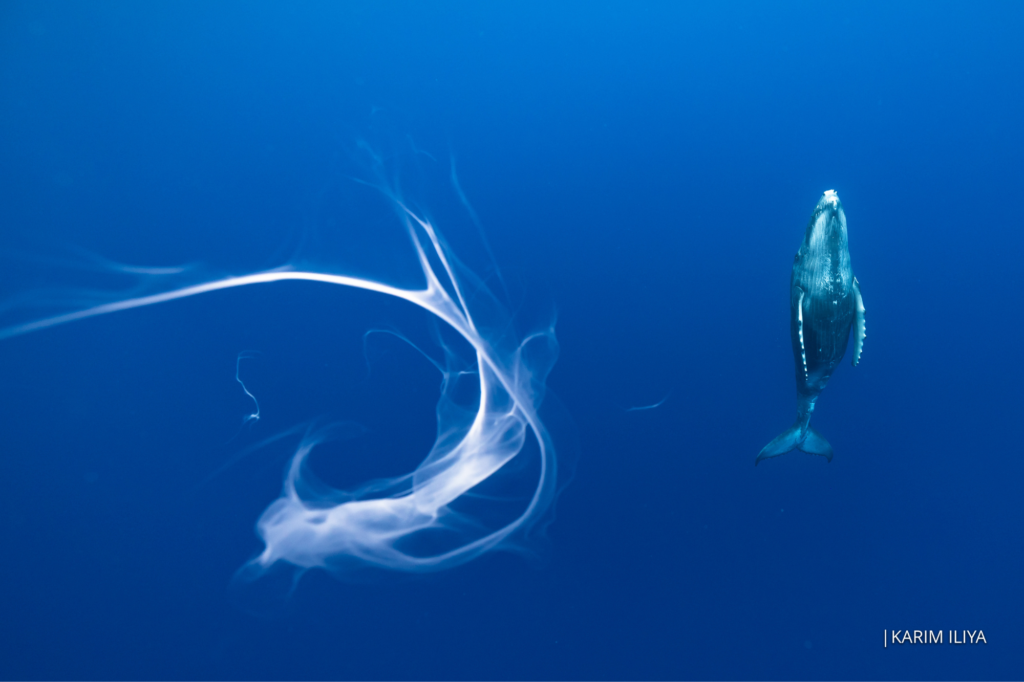19 Jun 2025

In this series of events, which are part of Jenni Ramone’s project on breastfeeding narratives and representations, Jenni is joined by photographer Karim Iliya, writer ‘Pemi Aguda, and nurse educator Meg Moorman. These conversation events invite us to think about how the arts and humanities can transform the way we practice and understand breastfeeding, health, and our interactions with other animals and the planet.
Join Karim Iliya discussing the hidden underwater worlds and other natural places he has portrayed in photography and films, with NTU’s Jenni Ramone.
Karim Iliya is a photographer, filmmaker, whale swimming guide, and former dearMoon crew member based in Iceland. He also co-founded Kogia, a nature conservation non-profit. Karim grew up in the Middle East and Asia and developed an insatiable curiosity for the natural world which has taken him into the midst of exploding volcanoes, battling whales, ice worlds of the Arctic, and many of the incredible places where humans and animals make their homes. Through his photography and films, Karim takes his audiences to hidden underwater worlds and documents other natural places in an effort to protect Earth’s delicate ecosystems. Karim has worked in over 50 countries, won multiple awards, and his work has been featured in numerous distinguished magazines, documentaries, and publications.
For more on Karim’s work, check out his website and for more of his photos follow this link to his Instagram.
Join fiction writer ‘Pemi Aguda reading from and discussing her recently published collection of short stories, Ghost Roots, with NTU’s Jenni Ramone.
‘Pemi Aguda is from Lagos, Nigeria. She has an MFA from the Helen Zell Writers’ Program at the University of Michigan. Her writing has been published in Granta, Zoetrope: All-Story, Ploughshares, and One Story, among others, and won O. Henry Prizes. Her novel-in-progress won the 2020 Deborah Rogers Foundation Writers Award, and she is the current Hortense Spillers Assistant Editor at Transition Magazine. Ghostroots, a finalist for the 2024 National Book Award in Fiction, is her first book.
For more information about Pemi’s work, please visit her website, webstore, and Instagram
Join nurse educator Meg Moorman discussing her project on using visual thinking strategies to enrich nursing education and patient care, and considering how the strategies might be applied to breastfeeding support, with NTU’s Jenni Ramone.
Meg Moorman is a pioneering nurse educator whose innovative integration of the arts into nursing education has significantly influenced the development of clinical judgment and holistic care practices. As a Clinical Associate Professor at Indiana University School of Nursing, she also serves as the Coordinator of the MSN in Nursing Education Program and directs the Faculty Innovating for Nursing Education (FINE) Research Center. Dr. Moorman’s contributions have been recognized nationally; in 2022, she was inducted as a Fellow into the National League for Nursing’s Academy of Nurse Educators, honouring her innovative approaches to nursing education. She has presented her research internationally and consulted with various universities and healthcare workers throughout the world. Her ongoing efforts continue to inspire educators to incorporate humanities-based methodologies, like visual thinking strategies (VTS), to enrich nursing curricula and ultimately enhance patient care outcomes. Through her research and practice, Dr. Moorman has demonstrated that VTS can foster a safe learning environment, encourage diverse perspectives, and improve medical professionals’ ability to interpret complex clinical situations. Her work has shown that engaging with art through VTS not only sharpens visual literacy but also cultivates empathy and reflective thinking among nursing students. She was recently accepted into the Harvard Macy’s Art- Museum-based Health Professions Education Fellowship.
Form more information about Meg’s work, please follow this link to their website, and a feature written about this project can be found here.